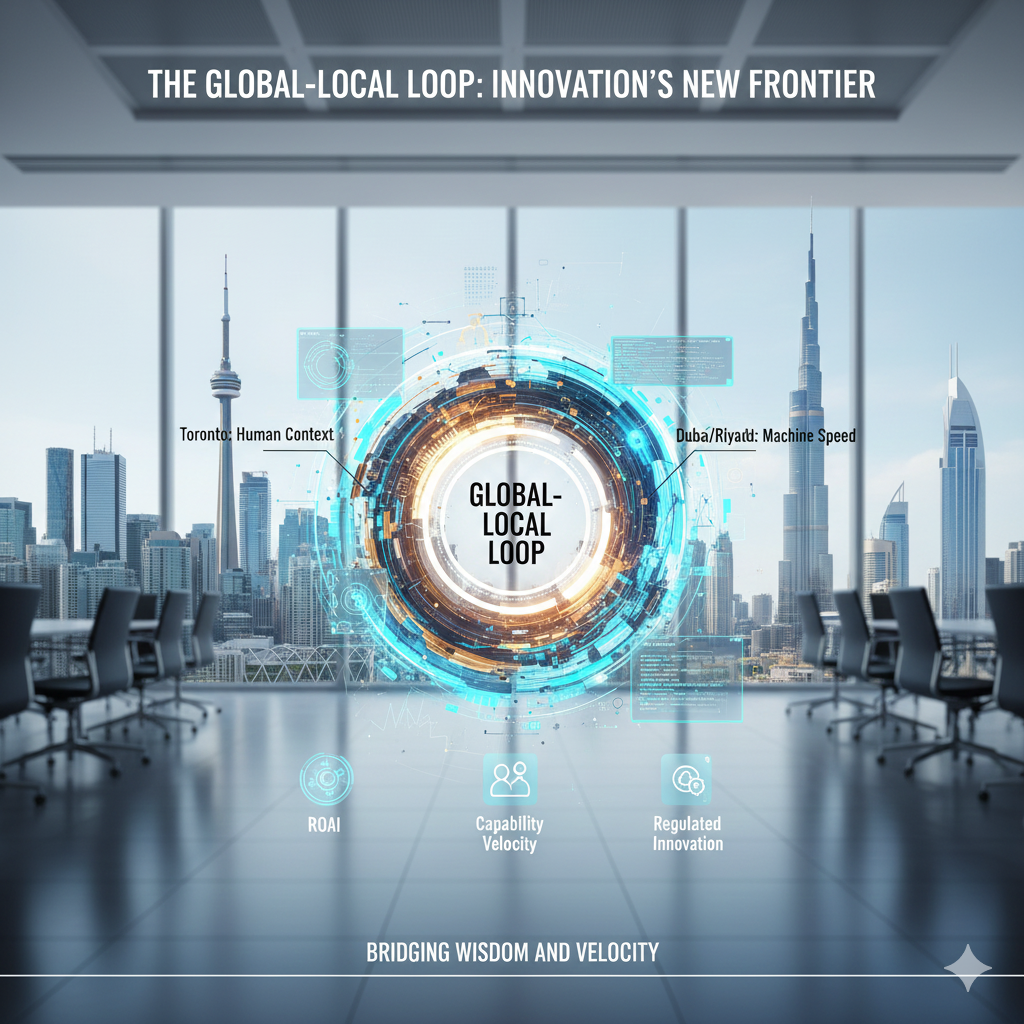
The Global-Local Loop: Why the GCC is the Innovation Lab for North American HR
While many view the GTA and the GCC as disparate markets, the reality of 2026 is a shared challenge: the need for unprecedented Capability Velocity. By treating the GCC as a high-velocity 'Innovation Lab,' North American HR leaders can discover a blueprint for solving the productivity gap using ROAI and Strategic Change Management. Explore how the Global-Local Loop allows us to pair international speed with local wisdom to lead the Agentic Age.

The Agentic Age in the GCC: Will Your Managers Sink or Scale in 2026?
We are entering the Agentic Age, where AI moves from a simple assistant to an autonomous 'digital apprentice.' For GCC leaders, this shift is the only viable path to meeting the strict 2026 MOHRE skilled-labor mandates without a linear spike in payroll costs. In this deep dive, we explore how the Supermanager must evolve into an 'Orchestrator' to drive Capability Velocity and secure a true Return on Applied Intelligence (ROAI)
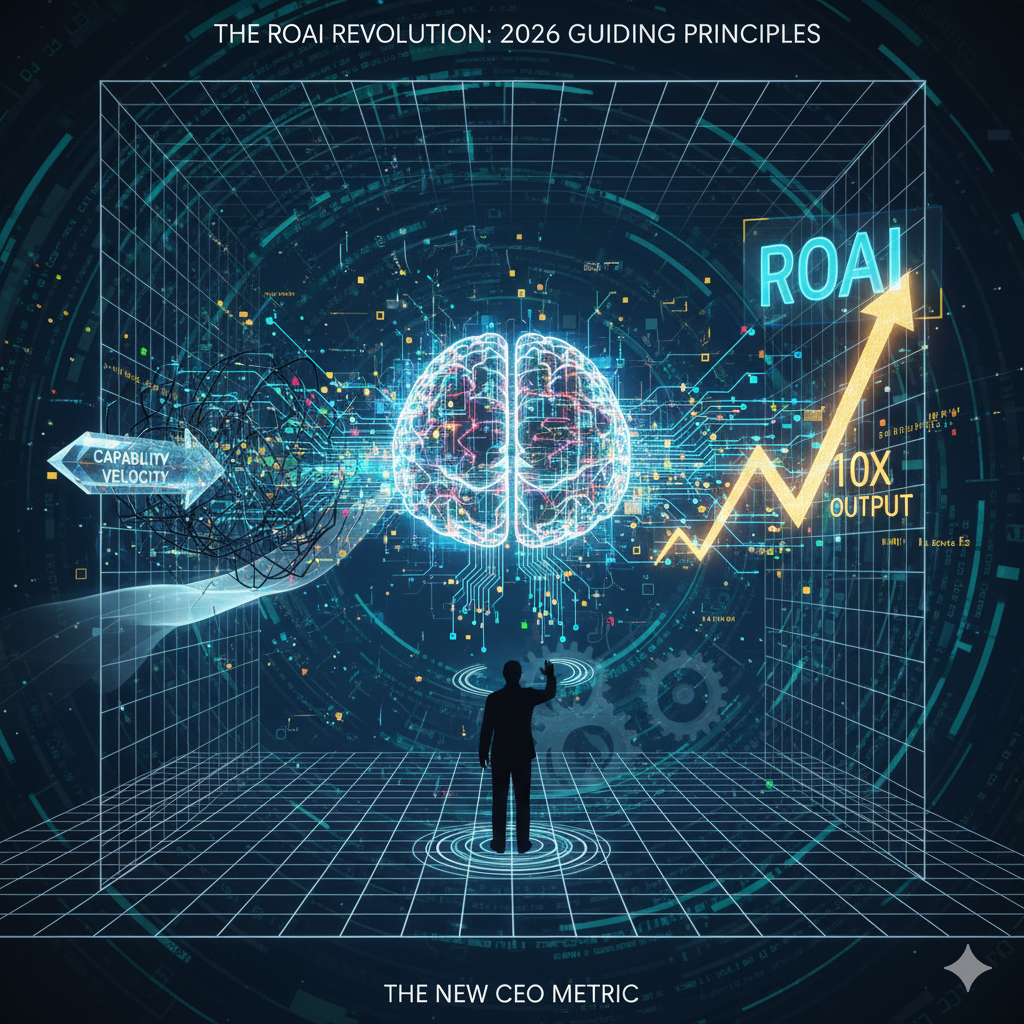
Beyond the Bot: The 2026 Guide to Return on Applied Intelligence (ROAI)
In the Agentic Age, traditional ROI is broken. Leaders in the Dubai RDI Ecosystem need a new metric to measure true value: ROAI (Return on Applied Intelligence). Discover how ROAI drives Capability Velocity, ensures MOHRE compliance, and leverages the new 2026 R&D tax credits to transform your organization into a high-impact innovation engine.
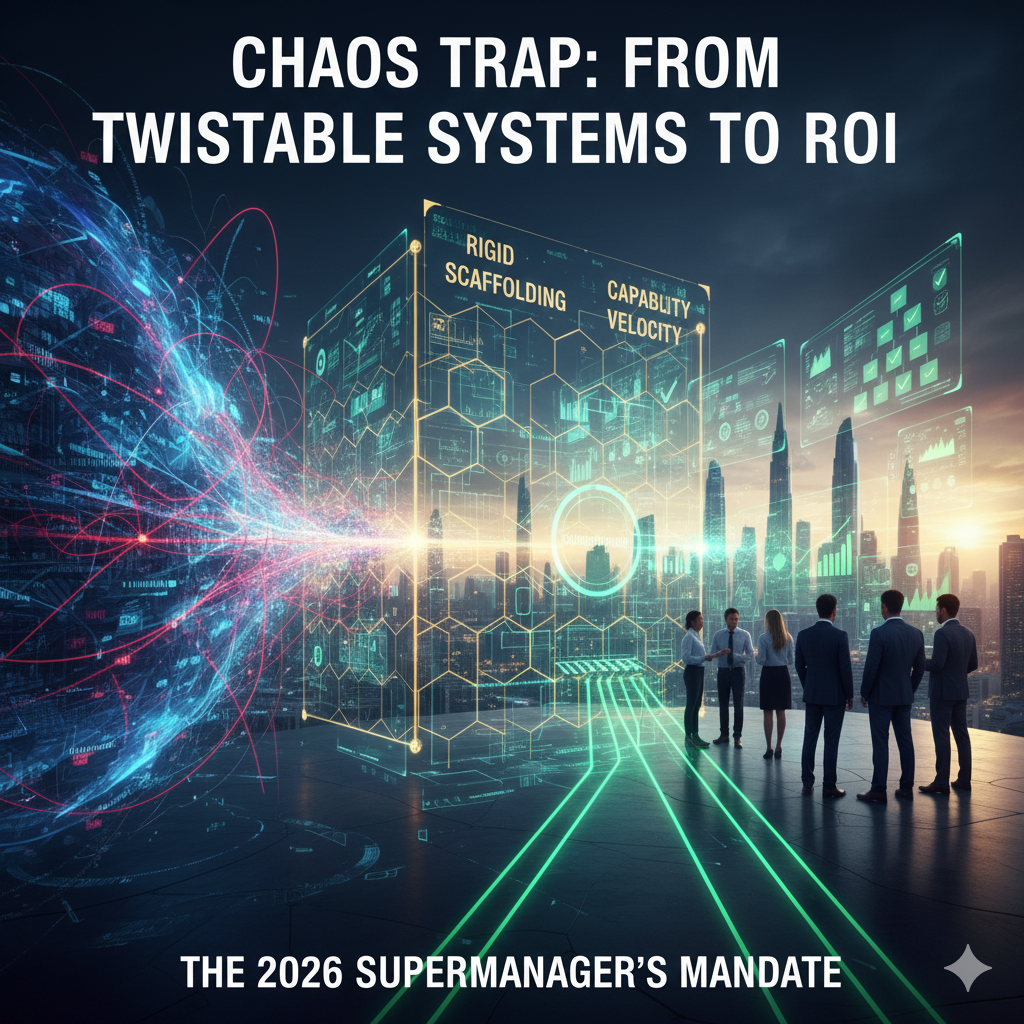
The Chaos Trap: Why "Twistable" Systems are Killing Your 2026 RDI Strategy
We are witnessing a paradox in the 2026 labor market: organizations are rebranding systemic chaos as 'flexibility' while simultaneously falling into an AI 'Tenure Trap.' As GCC leaders sprint toward #Vision2030 and the #DubaiRDI mandate, these 'twistable' systems are becoming a fatal bottleneck for innovation. Discover why the Supermanager must move beyond administration to eliminate structural debt and secure a true Return on Applied Intelligence (ROAI).
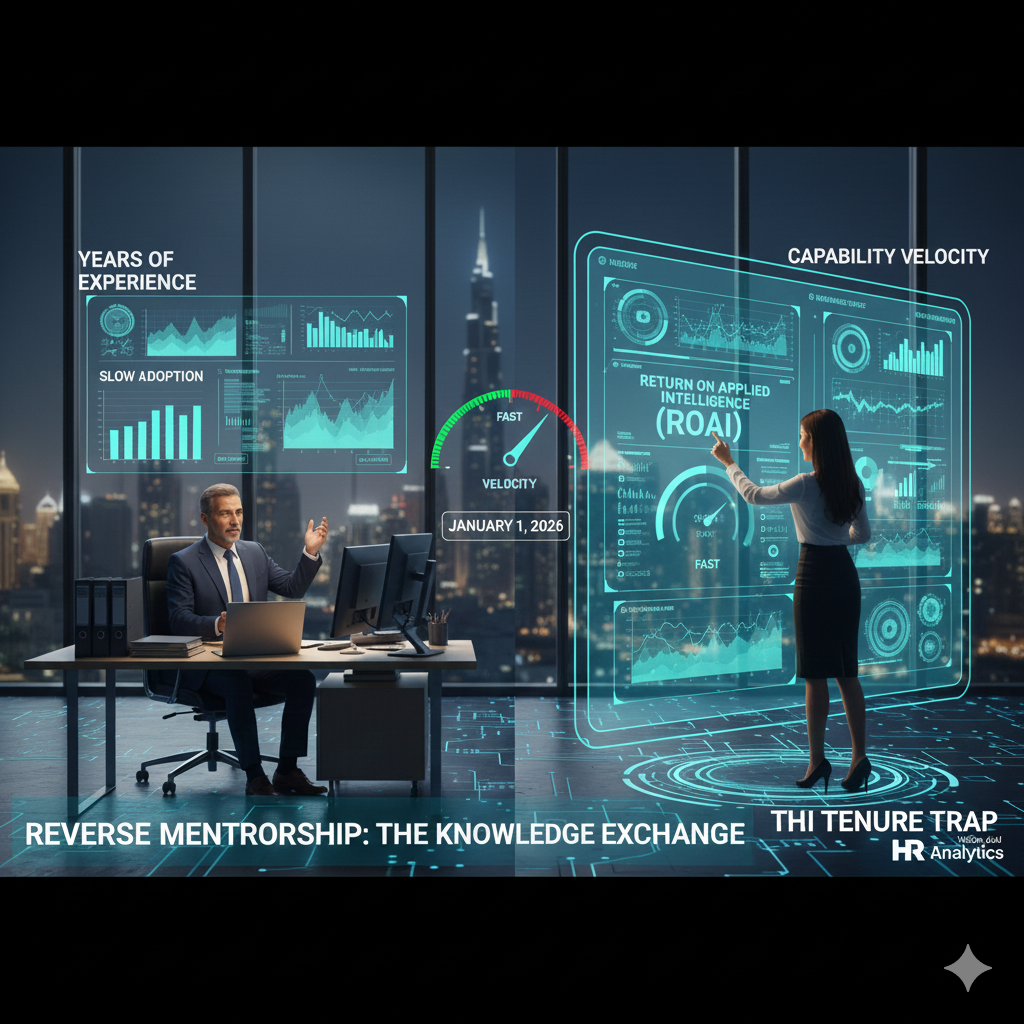
The AI Tenure Trap: Why the GCC’s 2026 Strategy Depends on 'Capability Velocity'
We are entering a paradox: AI is creating a 'Tenure Trap' where experienced workers use tech to do the old way faster, while AI-native graduates are being sidelined. For GCC leaders, this isn't just a hiring trend—it's a sovereign talent risk. Discover why the 'Supermanager' of 2026 must stop measuring years on a CV and start measuring Capability Velocity to secure a true Return on Applied Intelligence (ROAI)
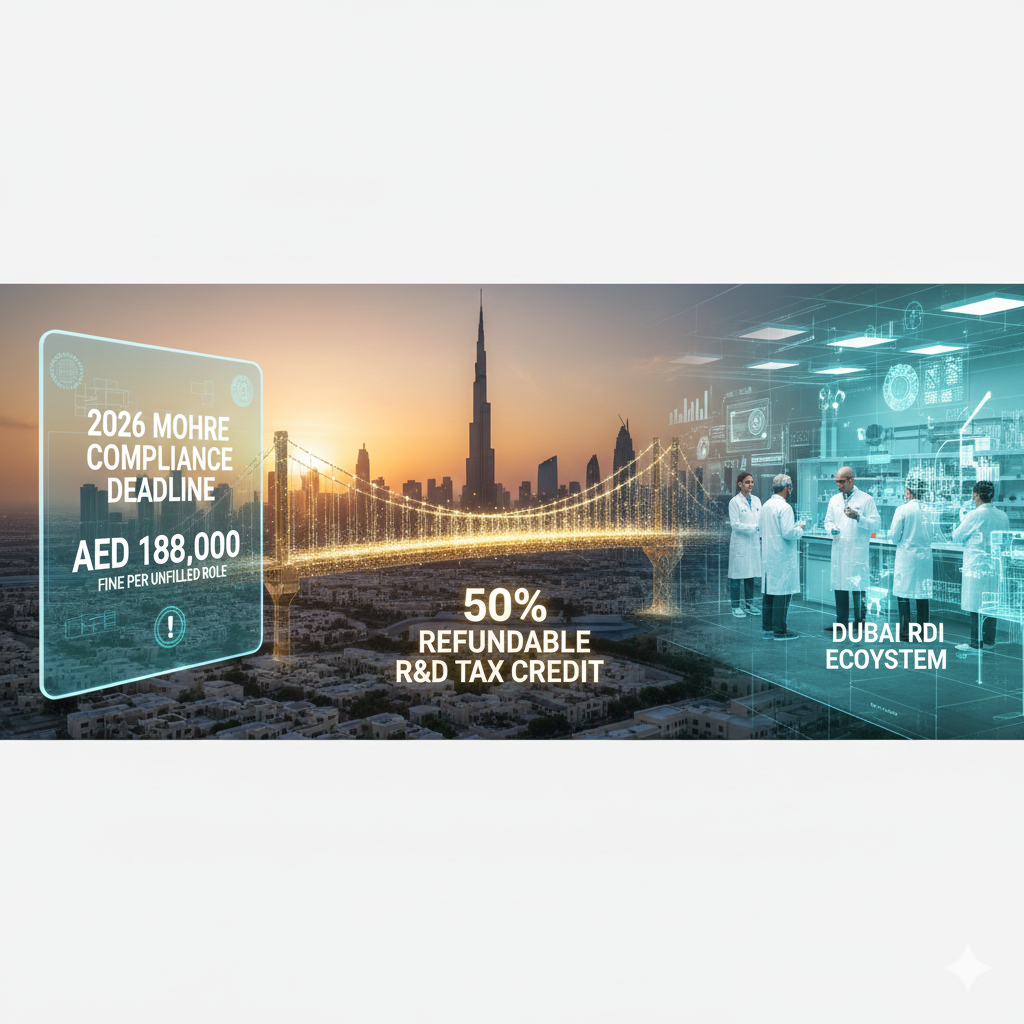
From Penalties to Profits: Leveraging Dubai’s RDI Tax Credits to Fund Your 2026 Emiratization Mandate
The January 1, 2026, MOHRE deadline is no longer just a regulatory hurdle—it is a financial crossroads. While many firms face AED 108,000 penalties for non-compliance, strategic leaders are looking at a different number: 50%. Discover how the new refundable R&D tax credit turns Emiratization from a cost center into a high-velocity engine for the Dubai RDI Ecosystem.
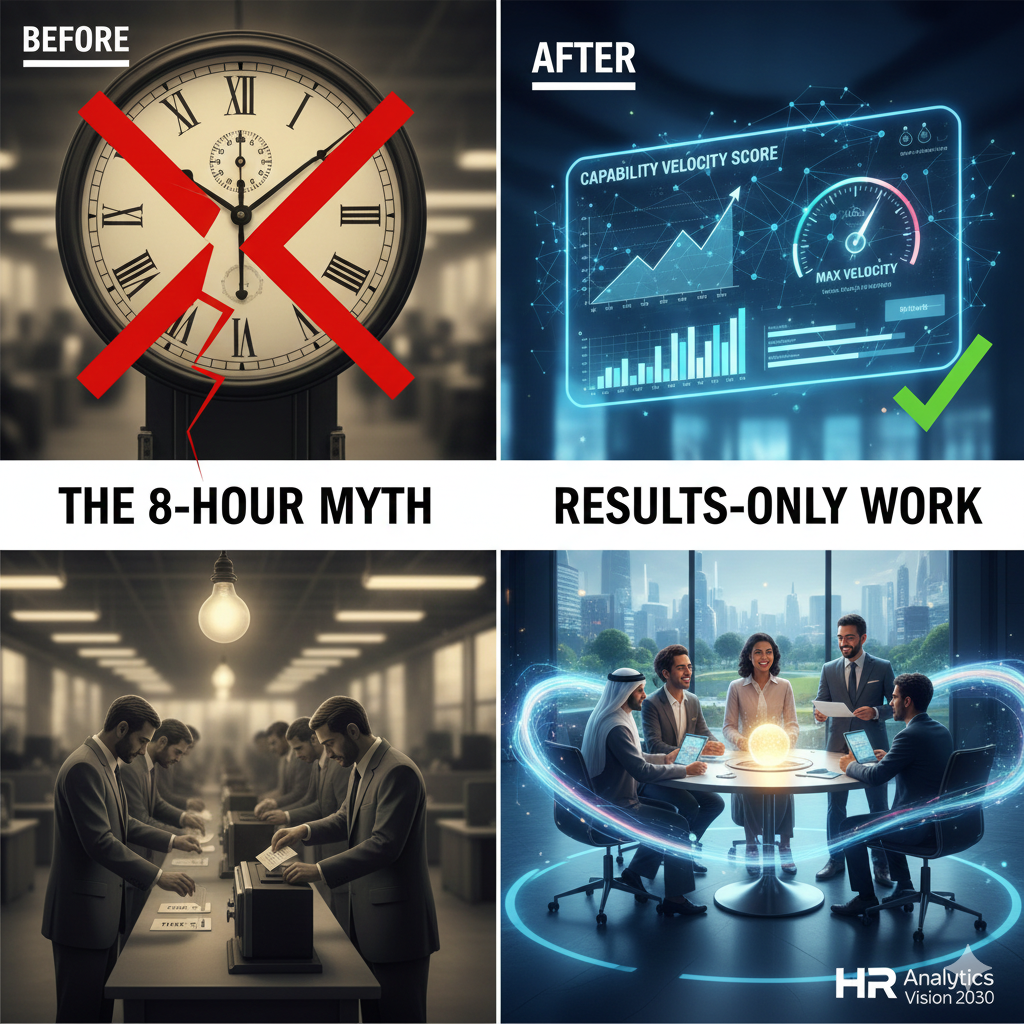
The 8-Hour Myth: Why the GCC Must Measure Capability Velocity, Not Clock-In Times
The 8-hour workday is a human invention, not a strategic necessity. In the high-pressure environment of the GCC, relying on "time-at-desk" as a proxy for value is a primary driver of Sunk Talent Cost and stagnation. This executive briefing explores why HR leaders in the UAE and KSA must stop measuring the clock and start measuring Capability Velocity. By shifting the focus from input to objective output, organizations can unlock the creativity and efficiency required to meet the ambitious milestones of Vision 2030.